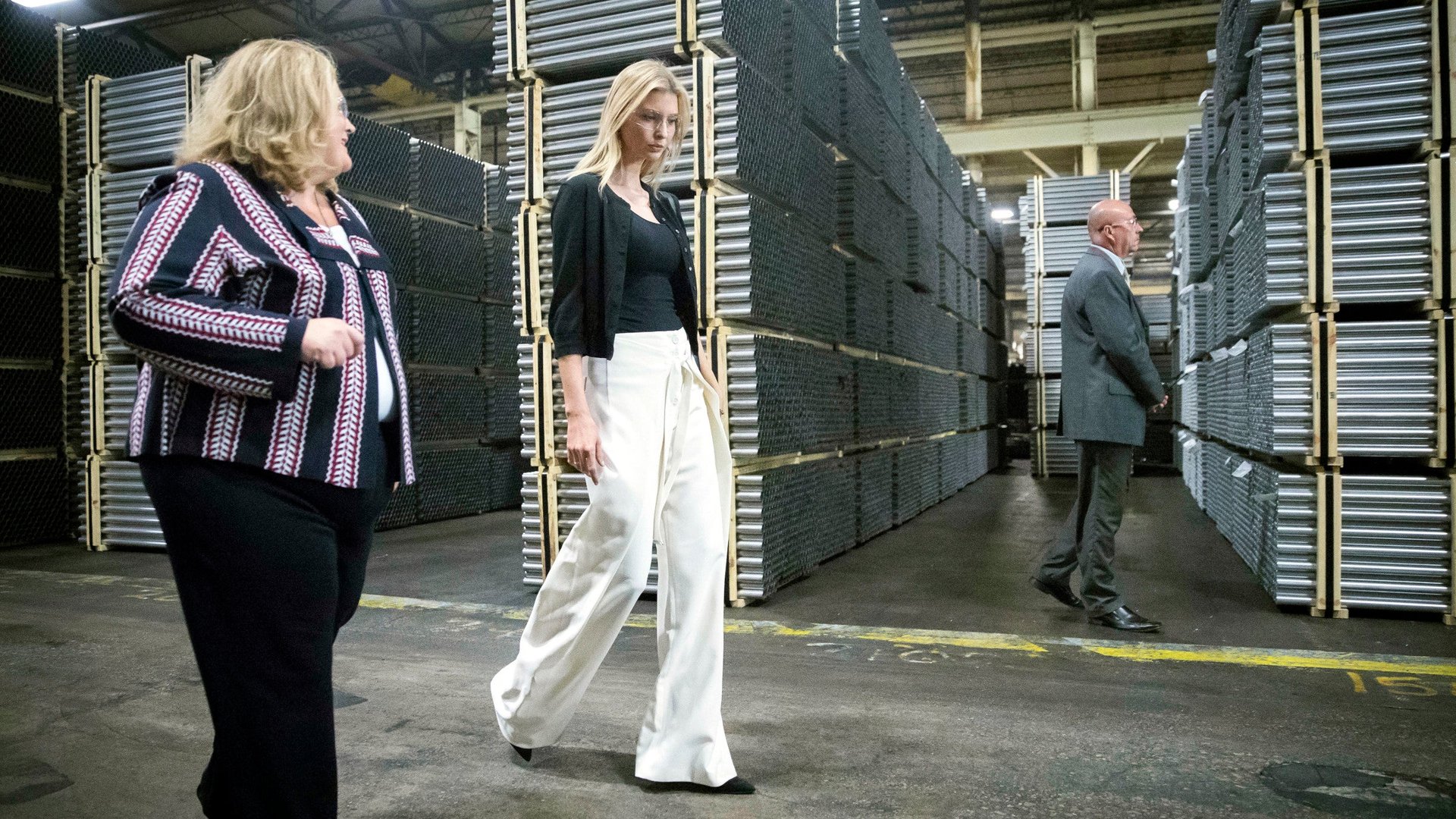Is the US suffering a dangerous steel shortage? Donald Trump wants to know!
The White House has called for an investigation into whether the US is in peril due to an over-dependence on foreign steel. The move could give president Donald Trump the tools to put in place restrictions on US steel imports and increase global trade tensions.


The White House has called for an investigation into whether the US is in peril due to an over-dependence on foreign steel. The move could give president Donald Trump the tools to put in place restrictions on US steel imports and increase global trade tensions.
Or it could simply be more tough talk on trade that ends without follow-through.
The investigation is based on a law that allows the president to review how different imports effect domestic industries that are necessary for national security. Most reductively, the question is whether will there be enough US-produced steel to build naval ships and army tanks in wartime.
Wilbur Ross, Trump’s commerce secretary—who, by the way, made part of his reported $2.5 billion fortune buying up bankrupt US steel producers and selling them to an Indian conglomerate—has made clear that the move was largely a way to get around the bureaucratic obstacles presented by World Trade Organization challenges for unfair trade practices, which previous US administrations have frequently issued. Those challenges can take years to resolve and offer only narrow relief from competition on specific products from specific countries. A finding of a national-security risk, by contrast, would empower the president to take immediate, wide-ranging action.
“[Those challenges] accomplished some measure of reduction, but it doesn’t solve the whole problem,” Ross said in a briefing for reporters. “We’re groping here to see if the facts warrant a more comprehensive solution, that would deal with a very wide range of steel products and a wide range of countries.”
Ross now has 270 days to come up with an answer before the president can take action. He predicted it would take less time, but promised to hold a public hearing and a period for public comment on the issue. Nonetheless, while he said no final decision has been made, it seemed clear what the result would be. “The recommendation won’t be to prohibit imports, it will be to change the price,” he said, meaning increases in tariffs in an attempt to bolster the domestic steel industry.
Since 2001, the US has continued to import more steel products, but also exported more, reflecting the global market in this commodity:
US production of steel has remained steady:
When it comes to national defense and trade, many experts are less concerned about the US being overly reliant on major commodity imports from abroad, and more concerned about its reliance on imported modern products. In any case, most US steel imports come from allies like Canada, Brazil and South Korea (pdf).
“Chinese monopolization of key technologies and industrial supply inputs is one of the most dangerous national security problems we have, particular in aerospace, semiconductors, lasers, and inputs into advanced weapons systems,” Matthew Stoller, who researches trade and competition policy at the New America Foundation. “While cheating and overcapacity from China in steel, aluminum, and other commodity inputs is a significant economic problem, it’s not really a national security problem because the technology to produce steel is well-understood and there’s steel-making capacity all over the world.”
Still, the gaggle of steel-making CEOs at the White House for the announcement of the investigation, and the lack of defense officials, hints at what may be Trump’s real motivation for ordering the review. Besides the question of whether national security is at risk, the secretary of commerce has leeway under this statute to consider whether there has been a loss of skills or investment in the steel industry sufficient to justify protectionist measures. The Trump administration’s main concern is more likely the kinds of blue-collar American jobs it has focused on since the election campaign.